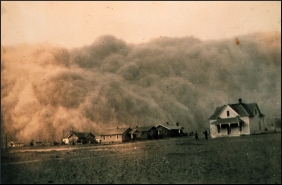|
|
|

|
Pollution divides urban and rural
|
|

|
|
| Top Stories |
 |
|
|
|
K Yatish Rajawat | 27 Oct, 2020
Expecting others to do the right thing is always a losing expectation.
People want everybody else to keep the city clean, everybody else should
not honk, everybody else is wasting and polluting and they are creating
the problems, not them. This expectation always meets with frustration,
hence smart politicians sometime harness it and direct it to people not
like 'them'.
The nip in the Delhi air will soon turn
into chilly winds and smog will smother the city with pollution. Whether
this will lead to rise or fall in the number of Covid cases as it also
attacks the lung, only time will tell.
Fashionable, rich Delhi
dwellers who need an SUV to travel 500 metres to a market will explain
to you in great earnestness that farmers are the ones who are causing
the pollution. By burning rice stubble in the fields, the farmers are
choking them and their children.
Their impassioned pleas crumble
under data, as transportation contributes 41 per cent, industry 18 per
cent, and wind blown dust over 21 per cent topollution.
Yes,
stubble burning exacerbates the situation by preventing dispersion, but
the major contributors of pollution do not go away. Experts predict
vehicle ownership rate to grow at a staggering pace, from 22 cars per
1,000 people in 2018 to 175 cars per 1,000 people by 2040.
According
to a study by the Centre of Science and Environment, stubble burning
reached its peak in 2016, since then it has been coming down every year,
including in 2020.
Punjab still has 5-8 times more active
stubble burning hotspots as compared to Haryana. This means that farmers
have changed their behaviour and reduced stubble much more in Haryana
than in Punjab.
Stubble burning results in smog, according to
fashionistas, but it's not so simple. It will result in smog in Delhi
only if stubble burning is concentrated, that is a lot of farmers burn
stubble on the same day, and the wind is blowing towards Delhi.
If
they disperse the stubble burning over several weeks, it may not
actively contribute to the smog. But the bigger question that is still
unanswered is why is the smog caused only in the city? Do the rural
areas also get the same level of smog, or a high level of concentration
of PMI 2.5 in the air showing toxic pollution.
There is no data
for pollution in the rural areas where stubble burning happens and even
the adjoining areas of Delhi which are rural. The agencies which collect
pollution data do not think its worthwhile to record or report data in
the rural areas, as if rural lives don't matter.
If there was
data on rural pollution, farmers can be told that their stubble burning
is affecting the health of their family members, and they may make some
efforts to reduce stubble burning.
Instead, the state uses
coercion, threats and fines to prevent stubble burning. The assumption
among the policy makers is that the farmer is stupid, does not care for
self-preservation and the only way to change his behaviour is to
threaten him.
The government works through threats; it does not
nudge change in behaviour, especially for people they don't know. Or
people that are not like them.
A farmer does not look like a
policymaker or a citizen of Delhi, and therefore it is easy to threaten
and blame him. But pollution is not a smog issue. Pollution or its
indicator PMI 2.5 builds up.
There is always pollution in the
air, and it is called baseline pollution. Because of the Covid-19
lockdown, factories, industry, construction activity, and even vehicular
traffic came to a halt. It was a great time to do a study on baseline
pollution in Delhi, and a scientist did it.
Gufran Beig,
scientist with the Indian Institute of Tropical Meteorology, along with
the DPCC and the India Meteorological Department (IMD), analysed data
from February 20 to April 14 and prepared base level of seven pollutants
for PM10, PM2.5, NO2 and SO2, among others. They published their
research on October 10.
During the lockdown period, pollution
remained below the 40µg/m3 mark on most days and even touched 20µg/m3.
On October 10, it was 95µg/m3, almost five times of the baseline.
"The
baseline levels of PM10 and PM2.5 were found to be 38µg/m3 (± 8) and
22µg/m3 (± 6), respectively. They found the baseline value of NO2 to be
8ppb (± 3), which is considered being very high," stated the research
paper.
The high baseline figures show that stubble burning is not
the only issue, Delhi can raise its baseline pollution by five times
without the smog or stubble burning.
Smart politicians do not
want to threaten Delhites with penalties, fines or imprisonment to
change their behaviour. They want Haryana and Punjab to threaten their
citizens to change. This war against pollution seems to have become a
war by urban dwellers against the rural poor.
|
|
|
| |
|
|
|
|
|
|
|
|
|
|
|
|
|
|
| |
| Customs Exchange Rates |
| Currency |
Import |
Export |
US Dollar
|
84.35
|
82.60 |
UK Pound
|
106.35
|
102.90 |
Euro
|
92.50
|
89.35 |
| Japanese
Yen |
55.05 |
53.40 |
| As on 12 Oct, 2024 |
|
|
| Daily Poll |
 |
 |
| Do you think Indian businesses will be negatively affected by Trump's America First Policy? |
|
|
|
|
|
| Commented Stories |
 |
|
|
|
|
|
| |
|